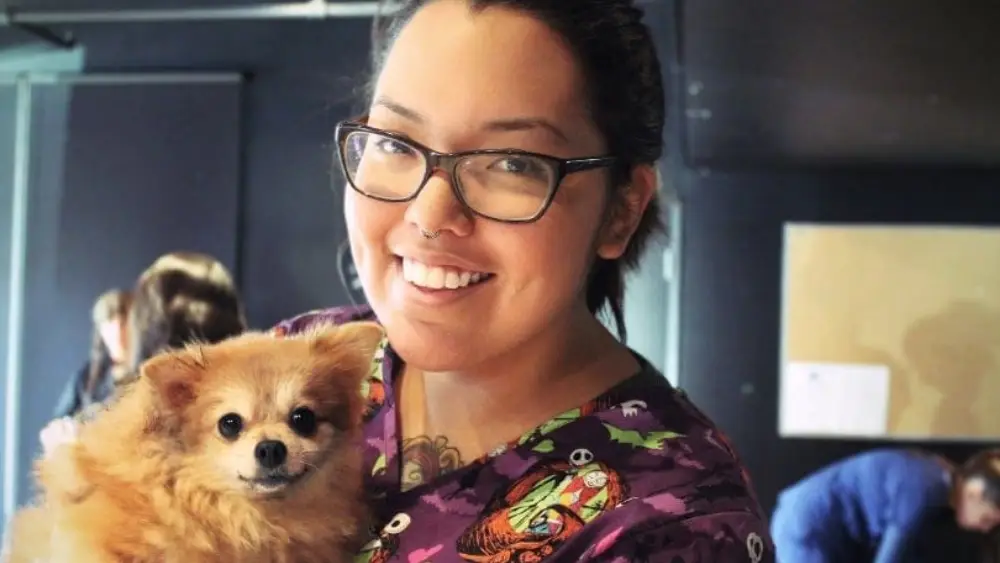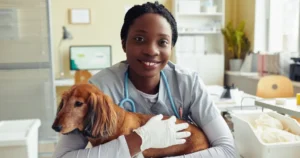Our Veterinary Technician Assistant program offers hands-on, practical learning, providing our students with all the knowledge they need for their careers.
The subjects covered are wide-ranging, but always have a practical focus, meaning that you can immediately start work in a veterinary office unfazed. Here are some of the things that you will learn throughout the program:
1.Animal restraint techniques
Animal restraint technYou will learn proper animal restraint techniques for a range of scenarios including everything from blood testing, vaccination, to surgery. This will also cover a range of patients – all shapes and sizes!
2.Laboratory test procedures
Laboratory test procedures are an important part of day-to-day duties and will also include use of lab equipment, pharmacology, and radiology.
3.Safety and sterilization best practice
Safety and sterilization are of the utmost importance in all medical practices so it necessary to thoroughly understand and be able to implement best practice procedures.
4.Anesthesia procedures
Anesthesia is required on a daily basis for animals needing surgery or invasive procedures. As a vet assistant you need to understand how everything works and be able to assist the veterinary technician administering the anesthesia.
5.Use of surgical equipment
As you will be maintaining and sterilizing surgical equipment, you also need to understand how it is used in order to better assist.
6.Small animal health management
Small Animal Health Management covers a range of medical conditions, nutrition and diets, along with identification and treatment of parasites, fleas and heartworm and the administering of vaccinations and other medications.
7.Patient home care
Patient home care is a very important aspect of your role as you inform clients of the aftercare needed for their pets. This is unique to each specific instance and forms a large part of your duties.
8.Veterinary office management
This includes the management of patient medical records, daily appointment scheduling, preparation of standard forms and documents used in a veterinary practice and general billing procedures.
9.Career planning
As part of the course we also assist in career planning including resume preparation, job search strategies and interview techniques. All of which should set you up for getting a job as a veterinary technician assistant!
10.Practical application
At the end of the program you will carry out a three-week practicum and gain hands-on experience applying everything you have learned on the course.





